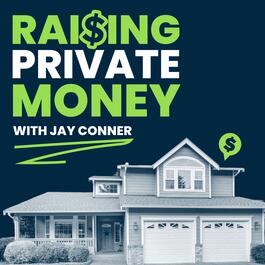
Lessons in Resilience: Maintaining Capital Flow When Traditional Funding Fails
***Guest Appearance Credits to: https://www.youtube.com/@realestaterunwaypodcast "174: Private Lending Truths Exposed!!!" https://www.youtube.com/watch?v=sttgmeGccWE Navigating the world of real estate investing today is no easy feat, especially with bank lending restrictions, rising interest rates, and a fiercely competitive housing market. Yet, for seasoned investor Jay Conner, these challenges are nothing new—in fact, they were the very catalyst that led him to discover the game-changer in his business: private money. Jay recently sat down with Chad Sutton on the Real Estate Runway podcast to share the hard-won wisdom he’s gained in over two decades of investing, flipping more than 500 homes, and weathering multiple economic cycles. For anyone hoping to level up their real estate game—whether you’re wanting to raise capital or are curious about lending your money to others—Jay’s experience provides a roadmap both practical and inspiring. The Wake-Up Call That Changed Everything Jay’s journey into private money began with a problem: after years of funding deals through a traditional bank line of credit, his banker cut him off without warning. Two pending deals worth over $100,000 in profit were suddenly at risk of collapse. Like many, Jay initially saw this as a disaster. But a phone call to a fellow investor opened his eyes to a new world. “Have you ever heard of private money?” his friend asked. The concept was foreign at first. But quickly, Jay dove into learning about private lenders—individuals who invest their capital into real estate deals for a fixed return, often secured by a mortgage or deed of trust. Within 90 days, Jay successfully attracted over $2.1 million in private funding, and he’s never missed out on a deal due to a lack of capital. Why Private Money Works—For Both Sides One of the biggest benefits Jay points to with private money is control. As a borrower, you make the rules: you offer the interest rate, set the terms, and negotiate the structure. Since 2009, Jay has paid the same 8% rate to his lenders, regardless of market swings. “We dictate the market,” Jay says. “We’re not at its mercy.” Private lending also appeals to those tired of stock market volatility and low bank returns. Jay’s program offers better yields, with the safety of backing loans with real estate and naming lenders on both the insurance and title policies. It’s not an unsecured loan—a key point for risk-averse investors. How to Find Your Private Lenders Jay breaks down three primary sources for private lenders:Your Warm Market: Start with people you already have a relationship with—friends, family, acquaintances, social networks, club members, and more. Retirees are especially good prospects, as they often have idle funds or IRAs seeking higher returns.Expanded Warm Market: Grow your network quickly by joining local community groups like Rotary or Business Network International (BNI). “There’s a direct correlation between your network and your net worth,” Jay notes.Existing Private Lenders: Seek out individuals already funding real estate deals. County records and self-directed IRA companies can be rich sources—over 70% of people with a self-directed IRA want to loan money on real estate, according to Jay. Protecting Lenders—and Your Reputation For those considering becoming private lenders, Jay’s top advice is simple: Invest in the operator, not just the deal. Know the real estate investor’s track record, ensure your loan is secured by a deed of trust or mortgage, and have every term in writing. Never wire money directly to the investor—always use a closing agent or attorney to protect both parties. Building a Business That La
From "Raising Private Money with Jay Conner"


Comments
Add comment Feedback